Ndutu is an area that covers the south-eastern part of the Serengeti National Park and where the herds of Wildebeest and Zebras spend from October to April to produce young and feed on the grassy plains before continuing on the great migration up into south Kenya. We were there to catch the end of the movement.
Our stay was at the Ndutu Safari Lodge, very remote but wonderfully situated. Once again, we were advised not to walk after dusk between our rooms and the hotel facilities without an armed guard due to the prevalence of predators - pretty obvious in the morning as Wildebeest, Zebras and antelopes were just a hundred metres or so away with no fence.
The hotel itself was rather more basic than previous ones but still adequate - wi-fi only available in the main hotel - but we assembled at the usual 06.00 for breakfast, accompanied by a pair of Large-spotted Genets in the roof timbers over us, waiting for scraps that the waiters put out for them. A tricky photographic subject as there was little light to work with.
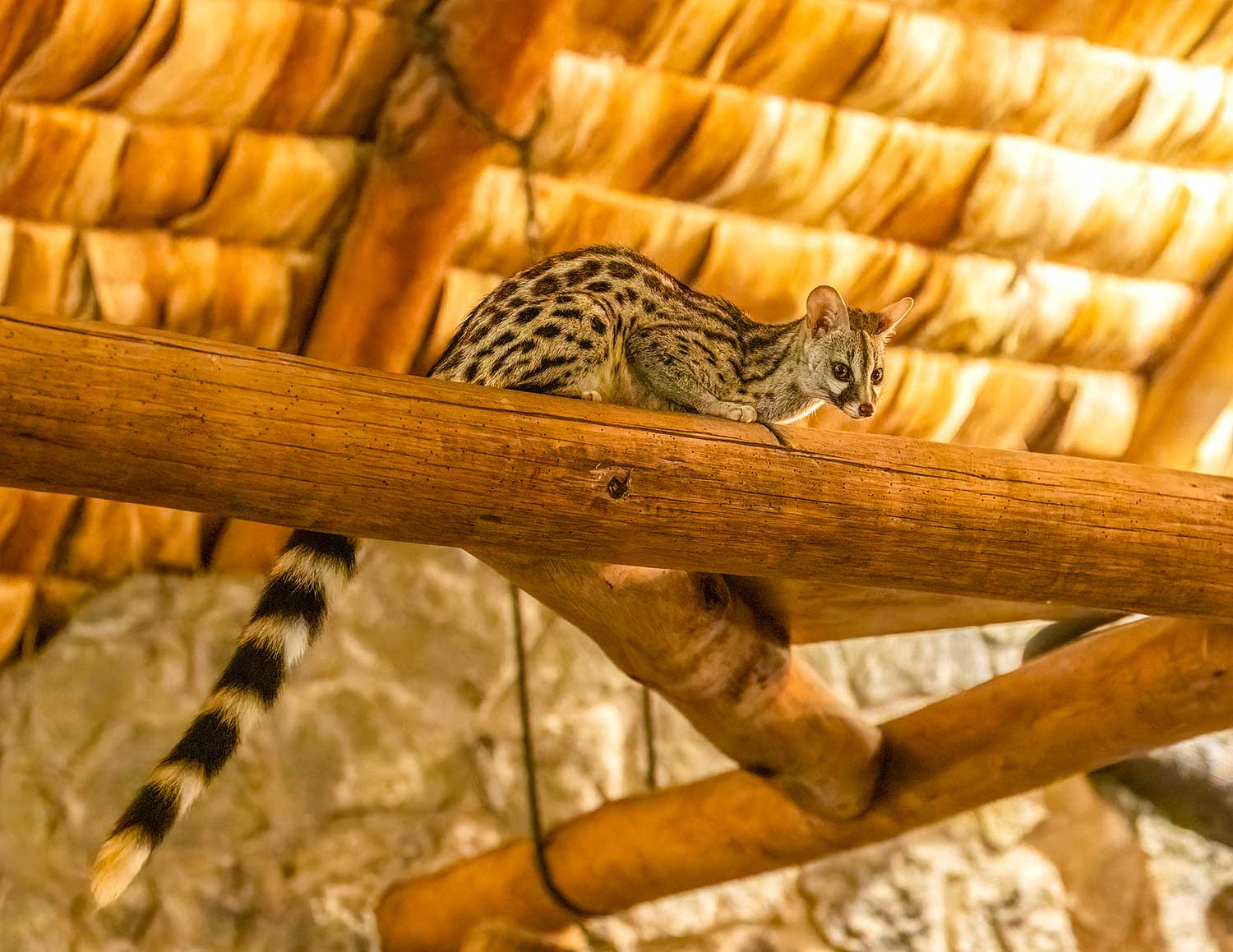
The weather was cloudy and rainy and not expected to improve during the day but the first real subject was a Spotted-Thick-Knee close by the track that posed nicely.

After a session with that we quickly found a family of Giraffe, at first rather wary but soon ignoring us.
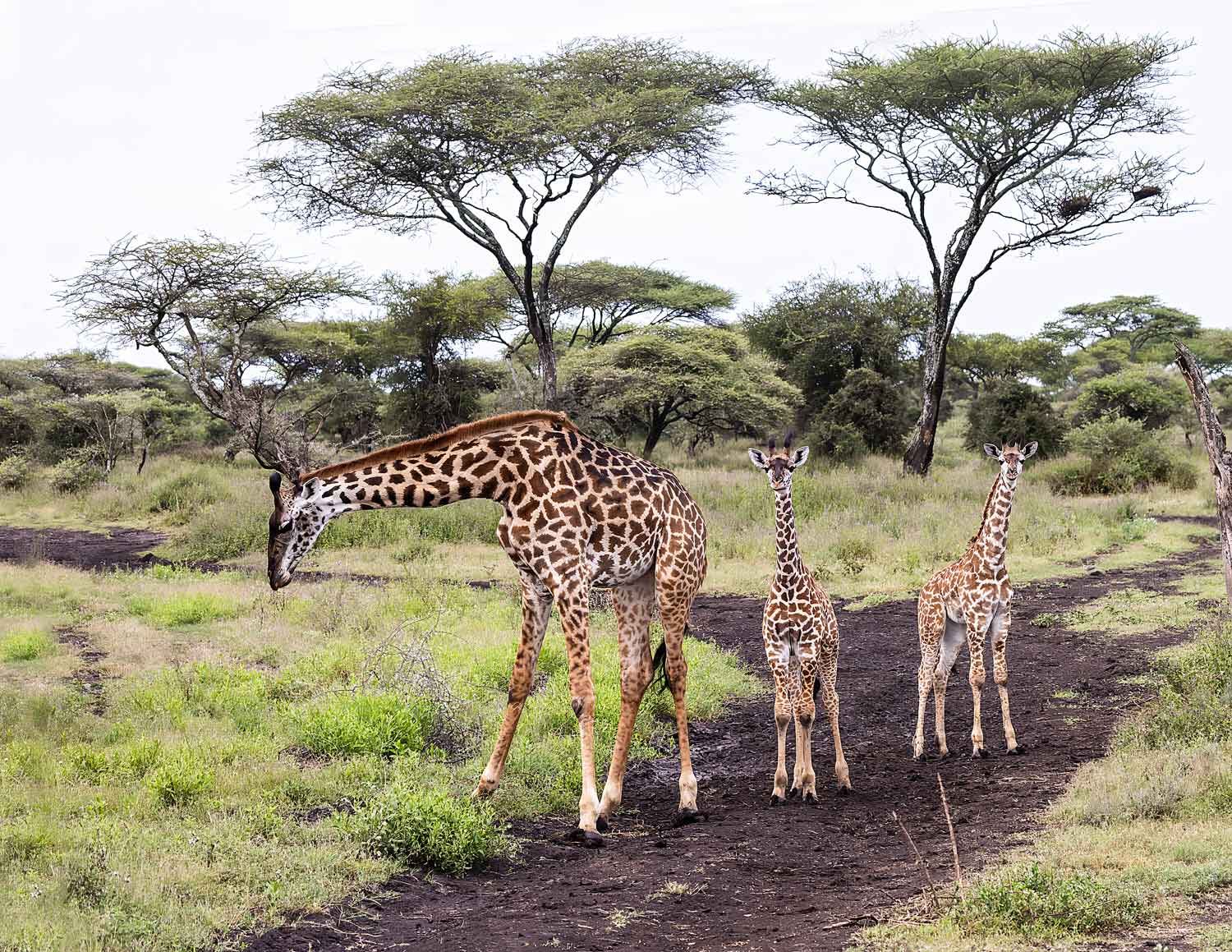
The grey leaden skies did not help with a couple of raptors we found later on both in hunting mode . First a Red-necked Falcon
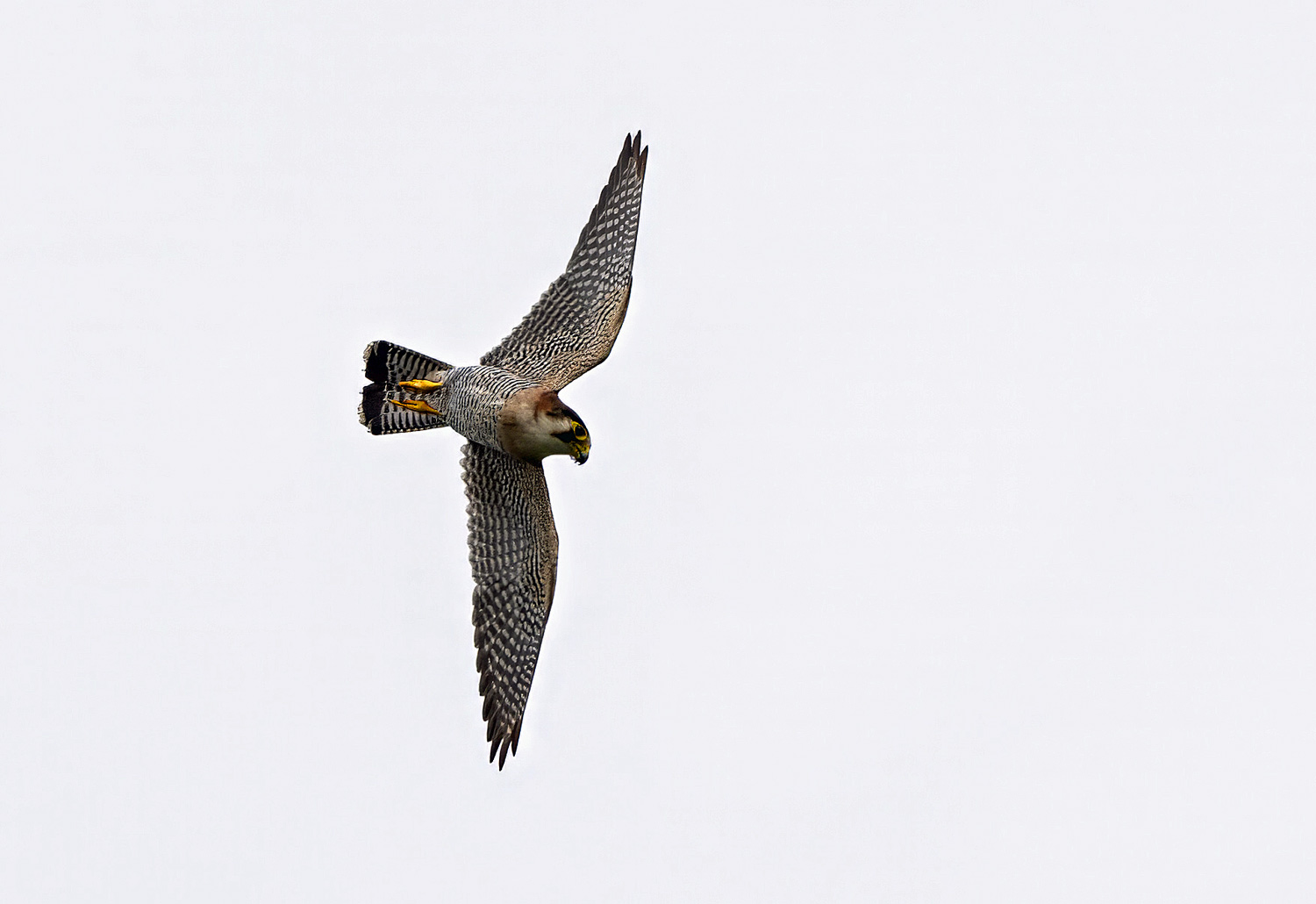
and a Shikra.
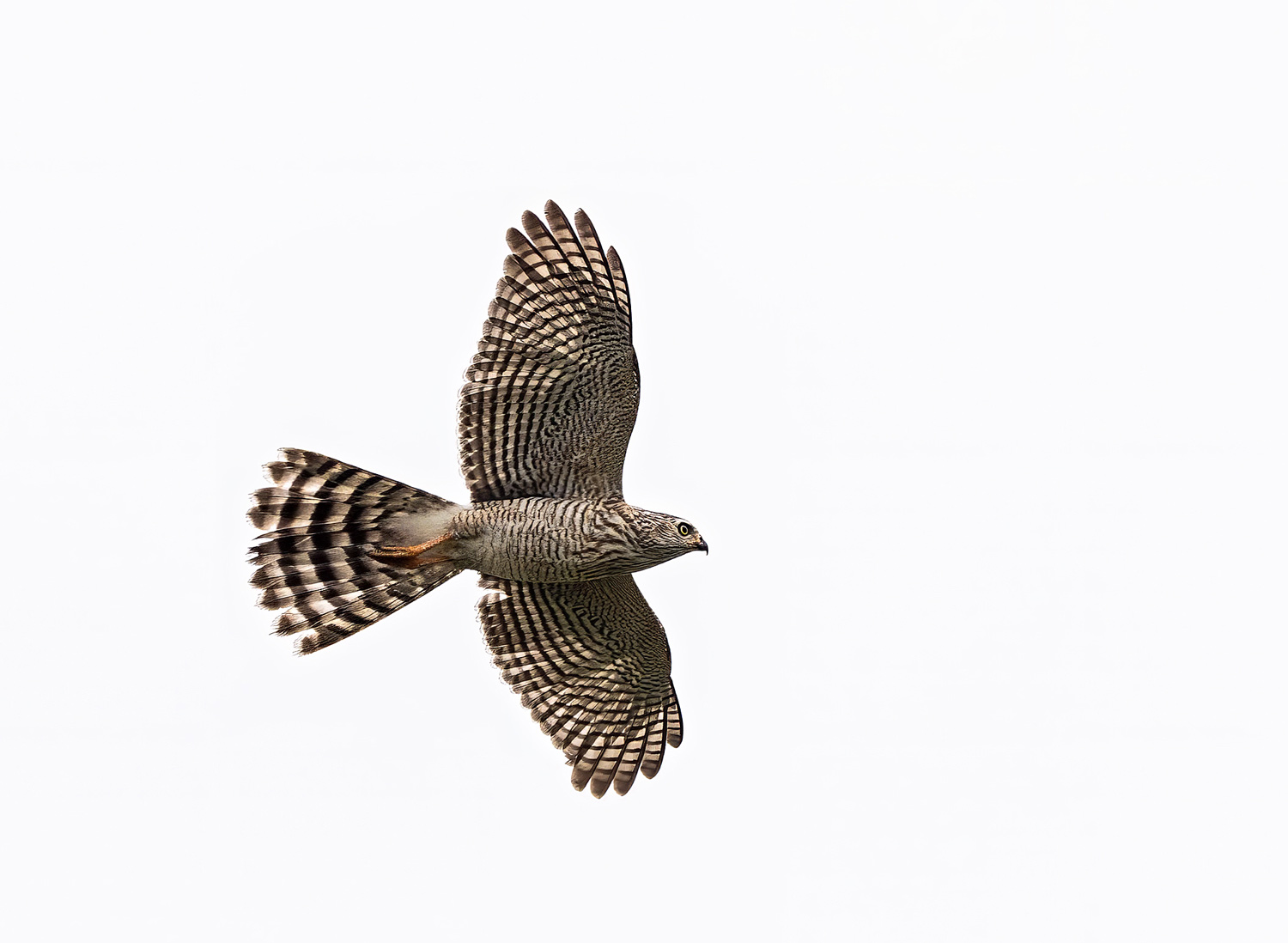
Still far from ideal photographic conditions but we found a pair of Verreaux's Eagle Owls roosting in a tree.
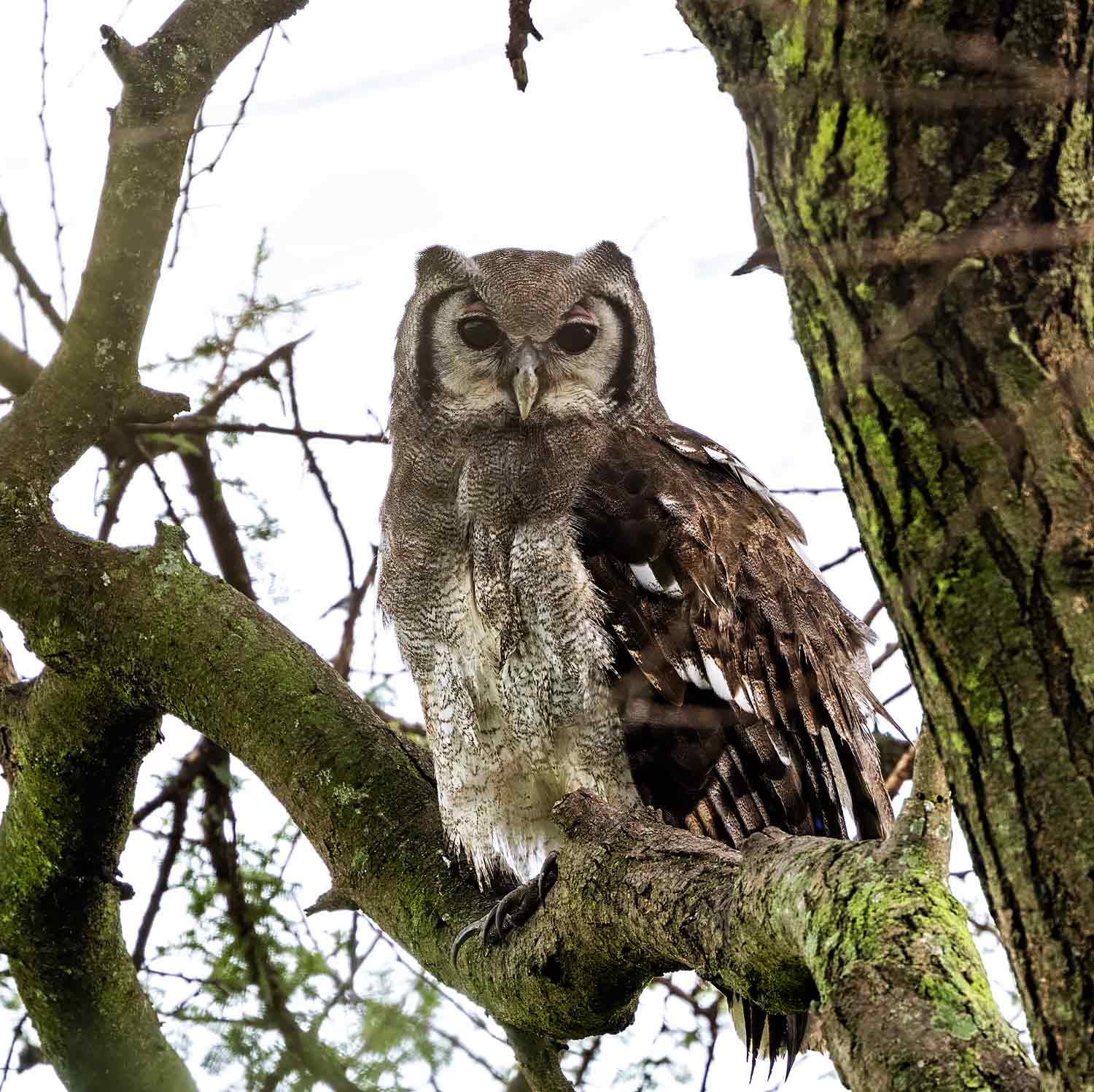
Another opportunity that really tested the my cameras ability to shoot in low light.
Later, we came across a few juvenile Wire-tailed Swallows, vainly waiting to be fed by the absent parents.
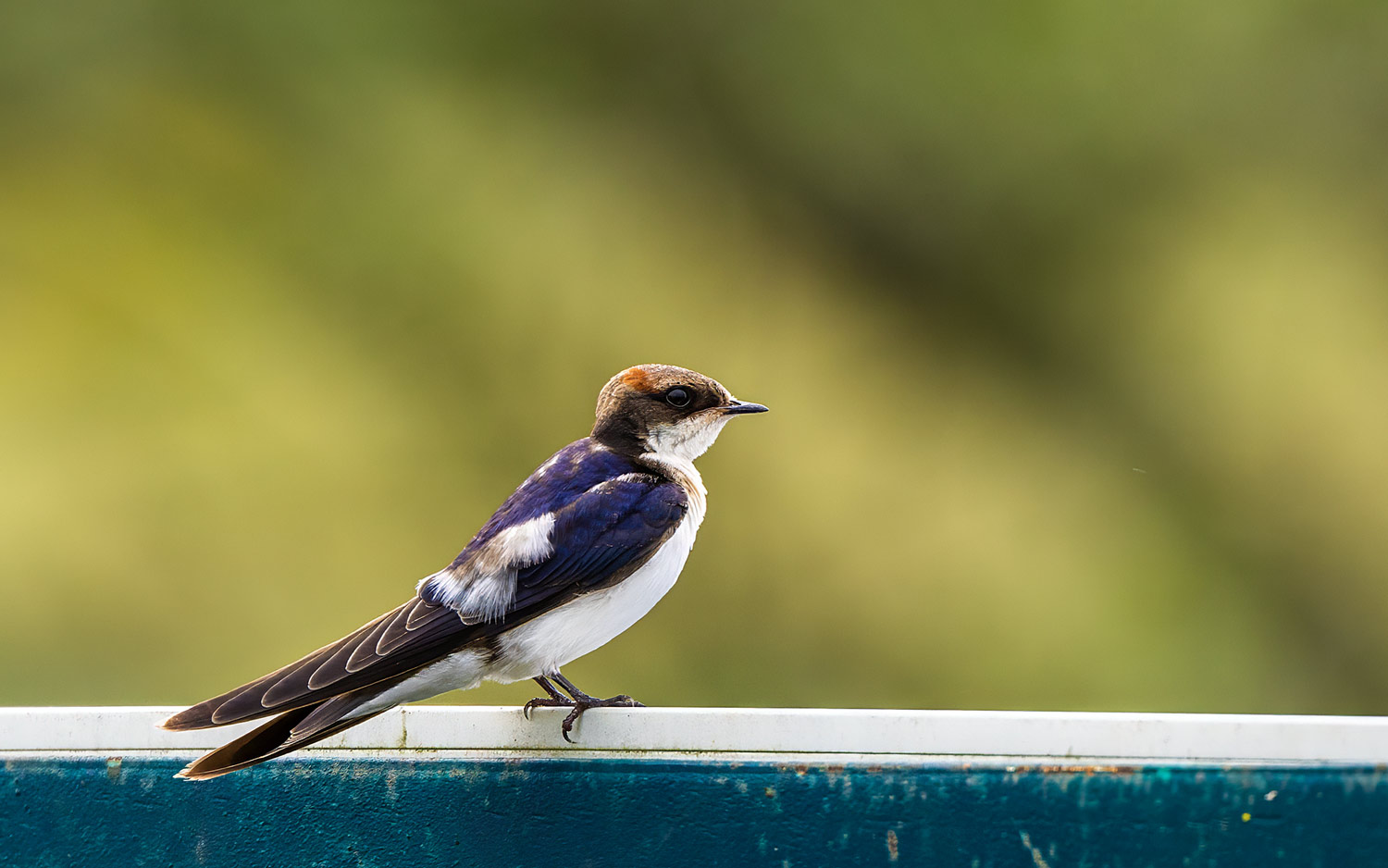
and then another colony of Little Bee-eaters that posed nicely with an attractive background for a change.
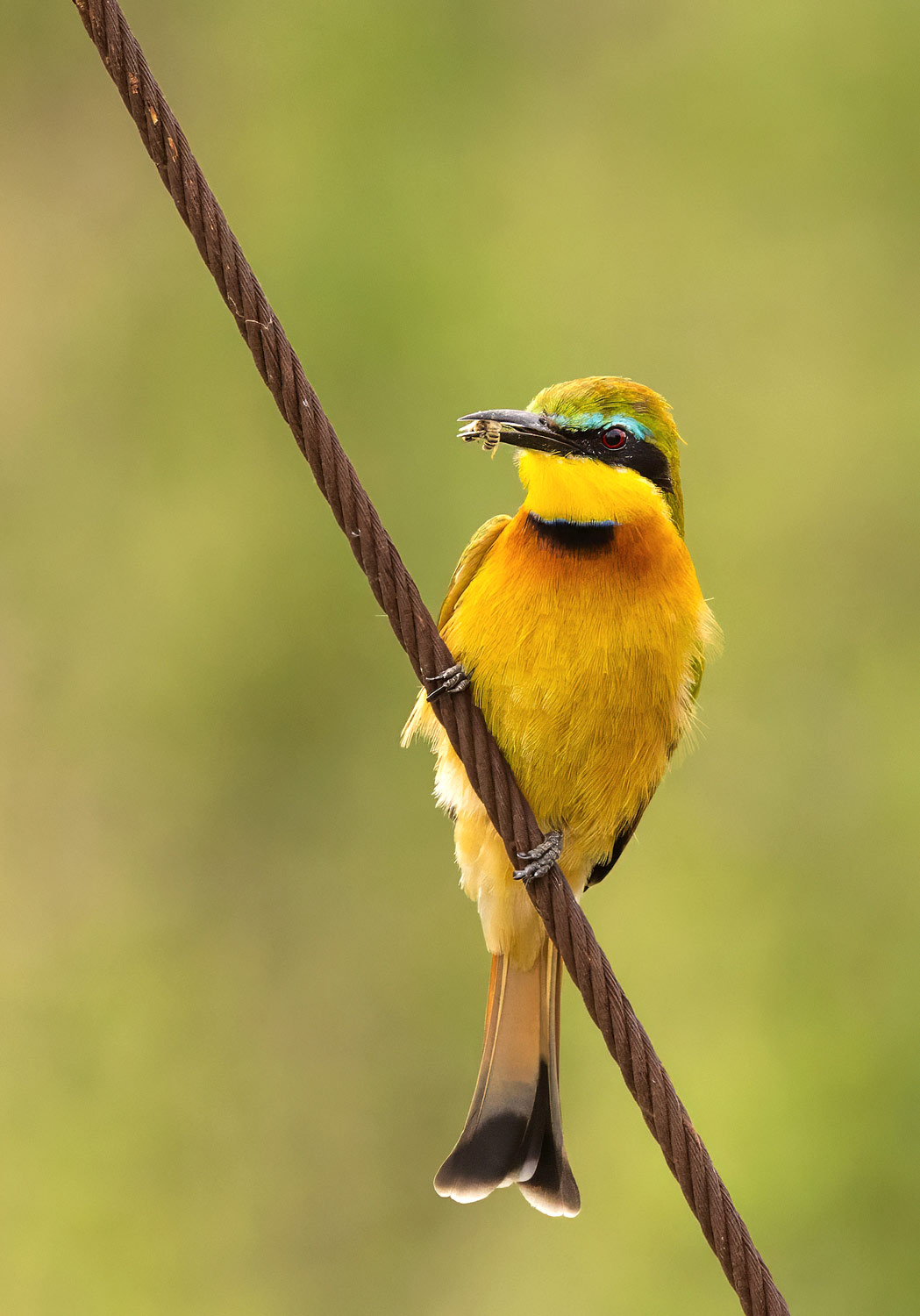
The light began to improve a little when we found a Hooded Vulture on the ground that stayed long enough for a few images.
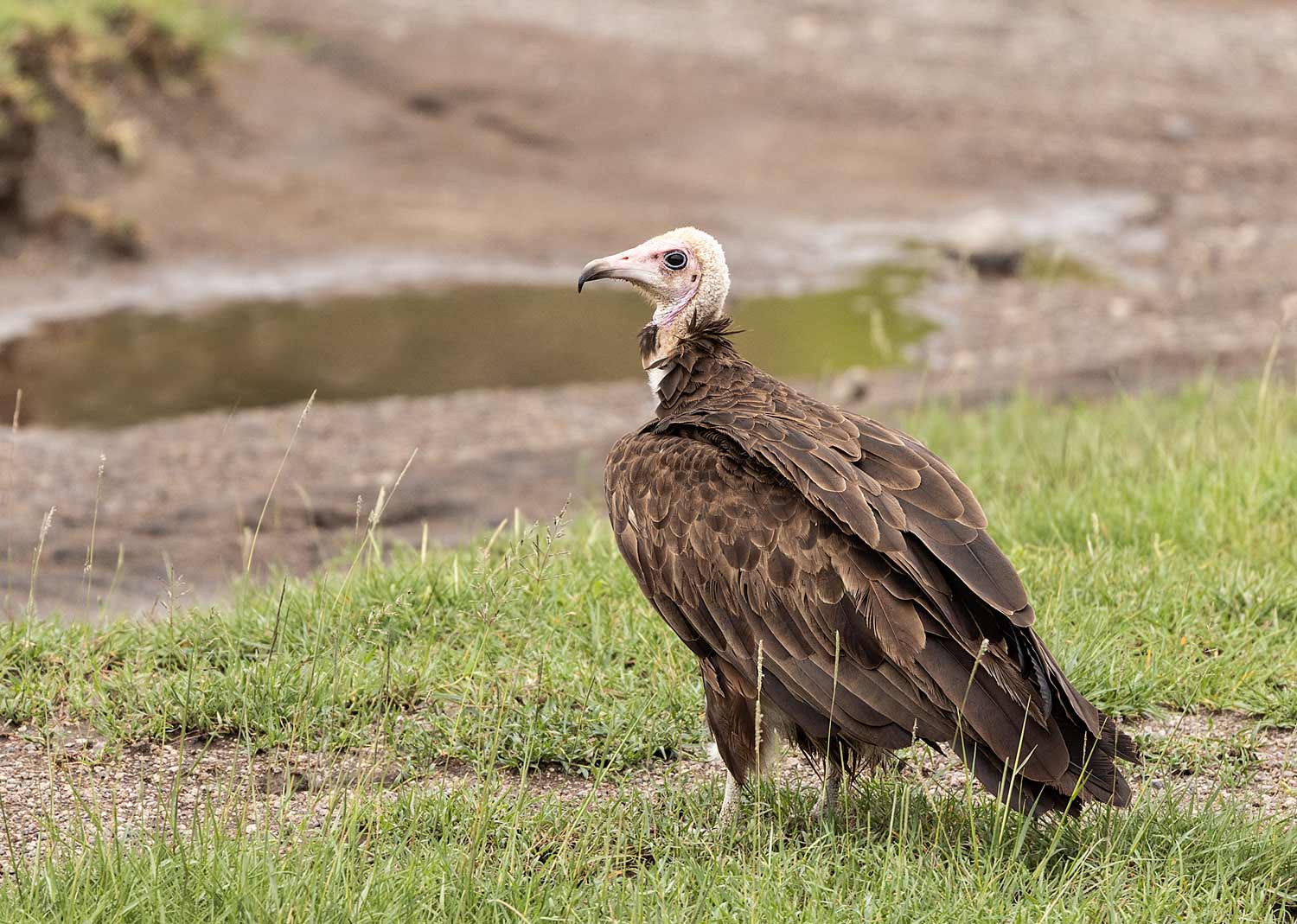
An unusual find was a Tawny Eagle on the ground looking to catch it's next meal

before a jealous neighbour decided to fly in to intrude on the opportunity.
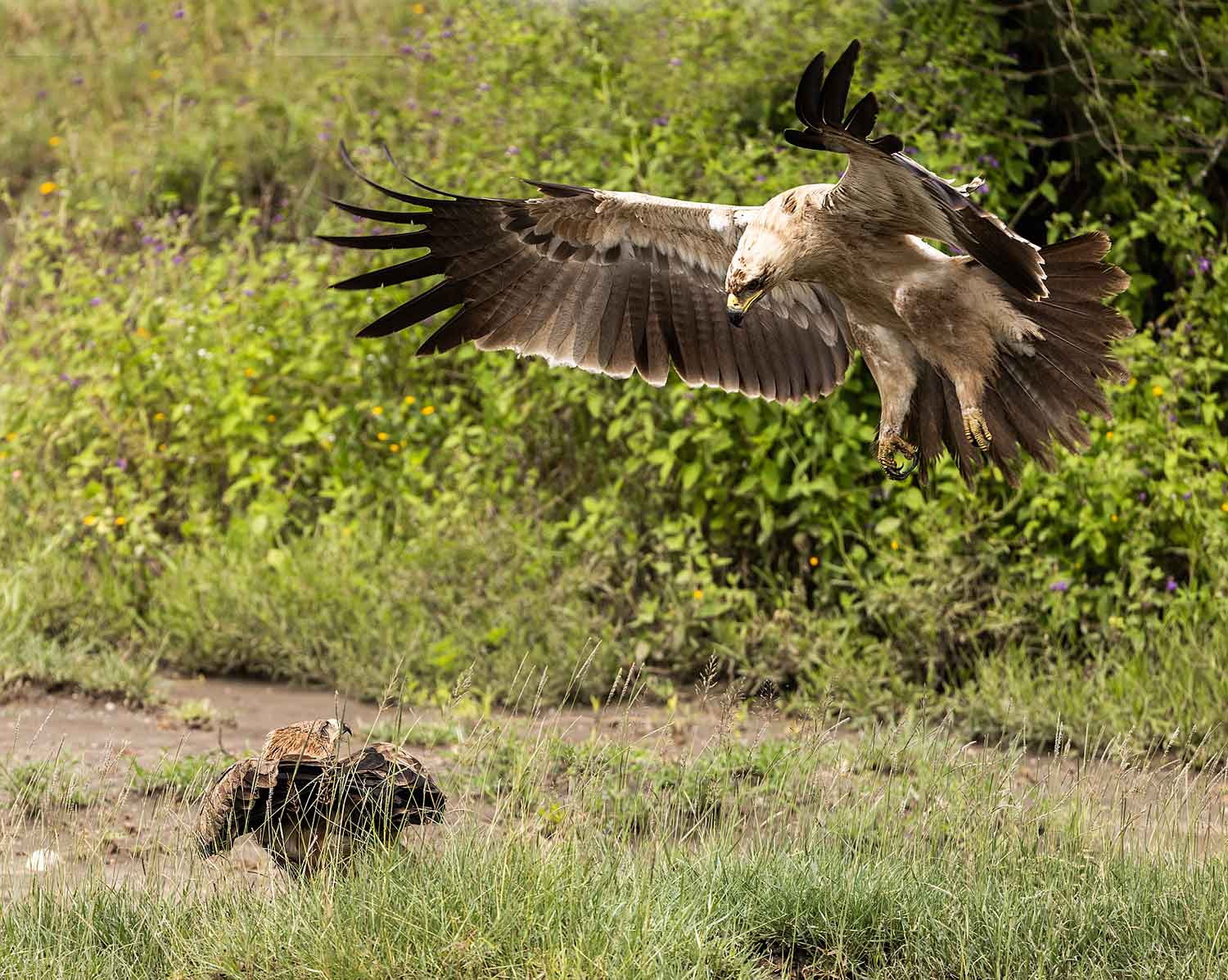
Then the rain set in with a vengeance in the early afternoon. However a male Impala was undisturbed by the rain or us.
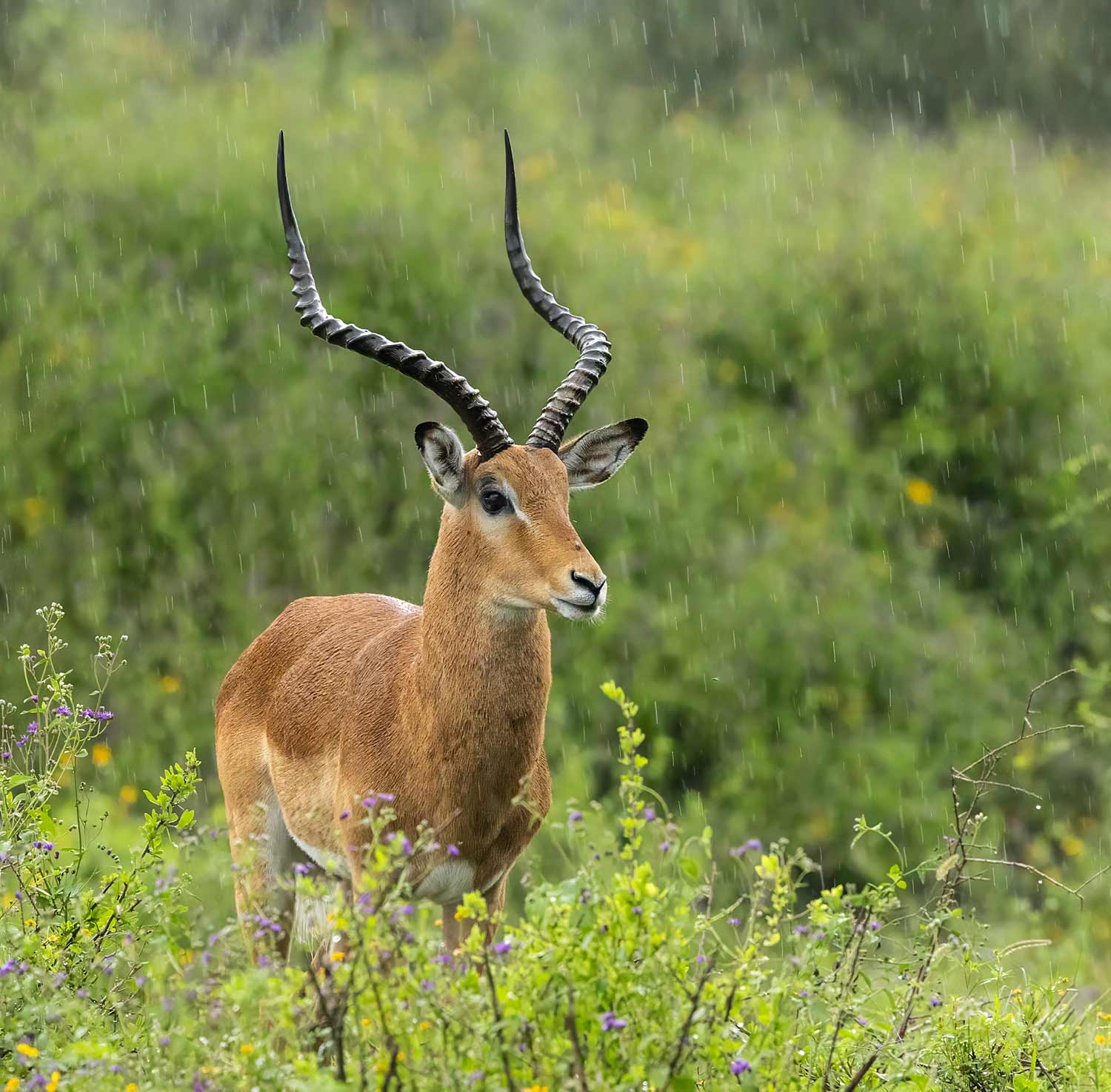
But the rain became torrential so we headed back to the hotel, on the way coming across a herd of Wildbeest that had started migration, but held up by the rain just a couple of hundred metres from the hotel, successfully preventing us from reaching it for an hour or so.
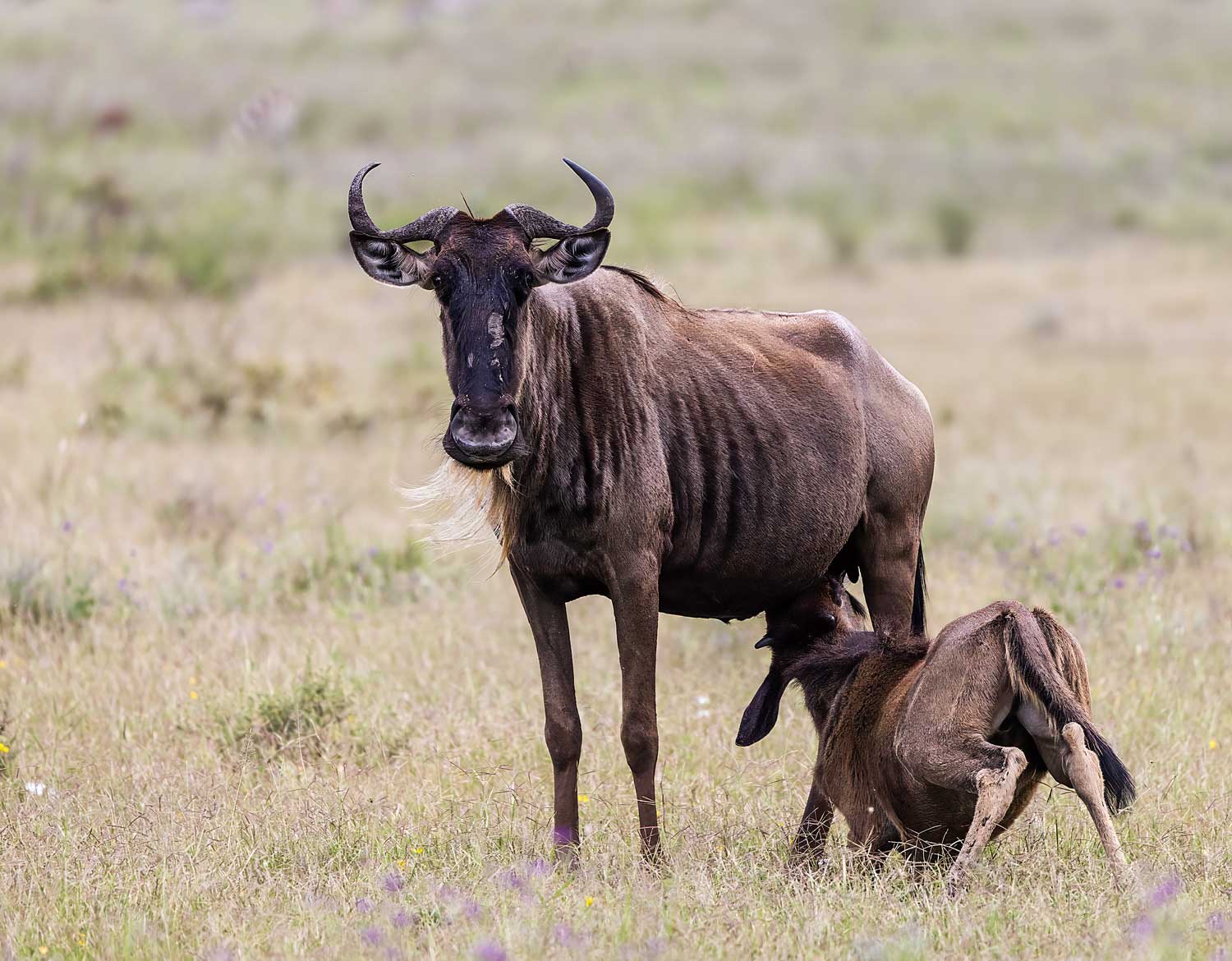
So that was the end of our first day in Ndutu - hopefully it will improve but the heavy rain was not a good sign for the next day.
